
At 11:07 on Tuesday morning, the New York Jets announced that they had fired head coach Robert Saleh. At approximately 11:08 on Tuesday morning, the rest of the NFL world began laughing at the New York Jets.
To say that Robert Saleh’s firing was a surprise is a little unfair. He had one of the hotter seats in the NFL when the season started. In our preseason predictions, I wrote “there’s a world where Aaron Rodgers gets Saleh fired early in an angry rant to management,” and while we’re not technically there, we’re not a million miles off. Saleh finishes his time in New York with a 20-36 record, with no winning seasons to his name – the first Jets coach to last more than three seasons with zero winning records since Bruce Coslett in the early 1990s. His tenure has been marked by off-field drama and by questionable on-field strategic decisions. It is fair to call his time as the head coach a failure, and moving on from him is, if anything, overdue. Aaron Rodgers’ torn Achilles bought him an extra month as head coach, and that has now expired.
On the other hand, why on Earth was Saleh fired now? The Jets are sitting at 2-3, one-half game out of playoff position. A win on Monday night against the Bills will put them in first place in the AFC East. They’re 22nd in DVOA, which isn’t great, but is competitive in the AFC. They’re 12th in defensive DVOA, Saleh’s side of the ball. In fact, Saleh’s defenses have been fairly uniformly impressive for most of his time in New York, turning a fairly talent-starved platoon around to being a top-10 defense in each of the last two years. They’re coming off a loss to Minnesota, yes, but a very credible one. Minnesota was the better team and deserved to win, but the Jets remained competitive throughout and Rodgers’ three interceptions were the difference makers. The Jets had the sixth-highest defensive DVOA last week at -18.1%, a number which should only rise as opponent adjustments get stronger. There is no shame in losing a close game to a better team at a neutral site.
This is not an embarrassing football team right now. The Jets are, at worst, a below-average team with issues that need to be fixed. They’re not entering a bye week, so it’s not like a new coach would have extra time to prepare for his new role. They’re not deep in a playoff hole and need to go on some sort of insane winning streak to keep their season alive. They’ve lost one game as a favorite, but that was two weeks ago. They’ve been blown out in one game, but that was four weeks ago. We didn’t see this firing coming. Robert Saleh didn’t see this firing coming – he was in the building, preparing for the game against the Bills, when he got the news. This goes down as one of the more shocking firings in NFL history.
That’s a big claim, so let’s back that up with some numbers.
There have been 73 midseason coaching changes since 1979, when DVOA begins. Saleh’s Jets are sitting at a -5.8% DVOA, which means Saleh has the 11th-highest mark of any replaced coach in the past 45 years. The average team firing a coach does so with a DVOA of -20.5%; the Jets have been way better than that. And even that’s not an entirely fair comparison. Looking at every coach, you get some odd situations, like Norv Turner or Rex Ryan being let go late in the year despite a positive DVOA because their teams fell out of playoff contention late and they weren’t going to be brought back for the next season regardless. That’s not the Jets – this is October. There have been 31 coaches let go after eight games or fewer, with an average team DVOA of -23.3% at the time of firing. Saleh’s DVOA ranks fourth among them.
| Top DVOAs for Coaches Leaving Midseason | |||||
| Year | Team | Coach | Week | W-L | DVOA |
| 1984 | NE | Ron Meyer | 8 | 5-3 | 6.1% |
| 2008 | OAK | Lane Kiffin | 4 | 1-3 | 1.7% |
| 1989 | LARD | Mike Shanahan | 4 | 1-3 | -0.3% |
| 2024 | NYJ | Robert Saleh | 5 | 2-3 | -5.8% |
| 1986 | SD | Don Coryell | 8 | 1-7 | -5.8% |
| 2021 | LV | Jon Gruden | 5 | 3-2 | -10.1% |
| 1998 | SD | Kevin Gilbride | 6 | 2-4 | -12.3% |
| 2012 | NO | Aaron Kromer | 7 | 2-4 | -13.5% |
| 2020 | ATL | Dan Quinn | 5 | 0-5 | -14.7% |
| 2008 | SF | Mike Nolan | 8 | 2-5 | -14.8% |
(Kromer is a bit of an outlier; he was an interim coach for six weeks due to the Saints bounty scandal and was always meant to be replaced by Joe Vitt after Vitt served his six-game suspension.)
Two of the three coaches let go after better starts than Saleh can be summed up as “Al Davis finally got fed up.” Davis was never the most patient owner and was more than willing to make a big move if his ire was raised high enough. He reportedly tried to get Lane Kiffin to resign after finishing 4-12 in 2007, and when that didn’t work, ended up calling him a “flat-out liar” and claimed he was “bringing disgrace to the organization”, accusing him of “conduct detrimental to the Raiders” and going off about all of this in the famous overhead projector press conference. Nearly two decades earlier, Davis and Mike Shanahan constantly clashed over scheme, assistant coaches, and personnel, with Shanahan repeatedly firing guys Davis hired only for Davis to immediately hire them back. It’s a shock they lasted 20 games together as it was.
Where there’s some precedent here, though, is in the name on the top of the list. Ron Meyer was in his third year as coach of the New England Patriots, with his 5-3 team one game out of playoff position. But Meyer had lost the locker room, with multiple player-only meetings being held to complain about him. Meyer then attempted to fire defensive coordinator Rod Rust, as Rust ran the problematic side of the ball (a 7.1% defensive DVOA, as compared to a 13.6% offensive DVOA), and that enraged Patriots management and sparked his immediate dismissal (as well as Rust’s rehiring). That’s how you get fired with a winning record and a positive DVOA: piss off your players and embarrass your bosses.
Saleh didn’t have a winning record or a positive DVOA, but he was close on both counts. And there was certainly plenty of locker room unrest, even if it mostly wasn’t aimed at Saleh himself. Players, most prominently Garrett Wilson, had publicly talked about their frustrations with the slow offensive start, and playmakers have been visibly frustrated on the sidelines. The Jets rank 23rd with a -9.7% offensive DVOA. That would, to be fair, be the best Jets’ offensive DVOA since 2015, but the return of a healthy Aaron Rodgers was supposed to take them to bigger and better things. And Rodgers has been one of the most frustrated of all – with him and Saleh bickering in public about his pre-snap cadences, the quarterback shoving the coach away during a Week 3 win, and body language so cold between the two they could stave off global warming by themselves. They assured us that everything was fine between them, of course, just as Jets owner Woody Johnson assured us that his Monday phone call with Rodgers had nothing to do with his Tuesday decision to let Saleh go. OK. We’ll get back to Johnson in a second.
Reports on Tuesday morning suggested that Saleh was also fed up with his offense’s performance. While reports that he was preparing to fire offensive coordinator Nathaniel Hackett were probably premature, it does seem clear that Saleh was prepared to demote Hackett, putting passing game coordinator Todd Downing in charge of game-day playcalling, and then letting Hackett decide if he wanted to stay with the team in a lesser role. Then, Saleh was fired! Instead, interim coach Jeff Ulbrich has said that no one’s title or position will change, though they will look into “responsibilities and the process itself”. In other words, Hackett has avoided the official demotion, but may still lose his gameday role.
If the news on Tuesday had been “the Jets fired Hackett in an attempt to kickstart their disappointing offense,” that would have made plenty of sense, and they would likely have been widely praised. In the wake of Saleh’s firing, damning takes on the Jets’ lack of offensive production have been coming out left and right. SNY quoted an opposing defensive coach ranting about a lack of creativity in the Jets’ offense, and cited three anonymous Jets offensive players who said that they were “at a disadvantage as a result of the offensive staff,” with one saying that “Hackett doesn’t take charge; half the time, he tries to put it on Aaron and Aaron will get frustrated.”
And that’s the fundamental problem with the Jets’ offense – it isn’t Hackett’s offense, it’s Rodgers’ offense, and it’s just not working. The lack of players being schemed open, the lack of pre-snap motion, the vanilla structure? This is what Rodgers wants – he wants things clean and straightforward, relying on his superior processing and arm strength to win the day on their own, rather than being locked in to decisions based on pre-snap shenanigans. It’s the same issues that led to him bristling up against Matt LaFleur in Green Bay. It worked when Rodgers was in his prime, and it could still work with a more creative playcaller; LaFleur and Rodgers worked together well enough to earn the quarterback multiple MVPs and repeated deep playoff runs. Hackett is nowhere near the same playcaller as LaFleur. Playcallers like LaFleur aren’t available in the middle of a season! And there’s no one that the Jets could bring in, either from the organization or outside, who would have the authority in the building to change the offense away from what Rodgers wants it to be. And with a quarterback not at the same physical peak as he was five years ago, without the relationship with his weapons he enjoyed in Green Bay, and without a playcaller who can find creative ways to work within Rodgers’ preferences, the offense is limited in what it can be.
And in what way does firing Robert Saleh help any of that? The unit is run by Hackett and Downing. Woody Johnson, in his press conference, was asked this question, and was evasive, to say the least. “One of the reasons I decided to make a coaching change is exactly that, we need to find ways to win,” Johnson said. “We’re not going to find those ways by doing the same thing over and over and over.” He also added “this is one of most talented teams that has ever been assembled by the New York Jets. I wanted to give this team the most opportunity to win this season. I feel that we had to go in a different direction and that’s why I did that today. The change we made, I made, I believe will bring new energy and positivity that will lead to more wins starting now.”
I’m not sure what energy and positivity comes from firing your head coach six days before a battle for first place in the AFC East. I’m not sure how keeping the same offensive decision makers in place helps find ways to win, or prevent you from making the same mistakes over and over and over again. I’m not sure that I would want to call this one of the most talented teams that have ever been assembled in New York! What I am sure of is that Woody Johnson, the former ambassador to the United Kingdom, did not enjoy seeing his team lose in London. And that Johnson didn’t bring Saleh into the Jets originally, as he had delegated responsibilities to his brother Christopher at the time. But he did bring in Rodgers, and he did push for Hackett to replace Mike LaFleur, and he shows loyalty to his guys. And so Saleh, who never had the respect of his owner or his quarterback, is out.
Where does that leave the 2024 Jets? I’m glad you asked.
Before the season, we had the Jets with a 46.4% chance of making the playoffs. After their 2-3 start, that has fallen all the way to, uh, 45.3%. That’s barely even a rounding error of a change; the Jets season has played out mostly like we expected it to. They’ve more or less hit the median result of their wide range of outcomes – an aging and diminished Rodgers still better than the junk they trotted out last year; a defense that is still good but a tick worse than last year thanks to the variability of defense. The Jets are, for a lack of a better phrase, who we thought they were.
Going 6-6 from here on out gives them a shot at the postseason. Going 7-5 gives them a better than 50/50 shot, and it would take a minor miracle for them to miss at 8-4. Does firing the guy who oversaw their better unit help make them more, or less likely to play .500 ball over the rest of the season? Does putting Ulbrich, who by all accounts is a good guy but has never been a head coach on any level, in charge fix the schematic or communication issues that have plagued the offense throughout Hackett’s tenure? Will replacing a head coach who led the team to slightly below-average results through five weeks produce a bump in performance, or will the added chaos end up dragging everyone down by the end of the year?
I’m pessimistic, to say the least. Panicked decision rarely leads to better results, and this has all the earmarks of panicked decision making. The Jets are almost in uncharted waters here, firing a coach of Saleh’s quality this early into a season. Only one of the nine teams on that table of teams swapping coaches early ended up making the playoffs – the 2021 Raiders, who saw Jon Gruden resign for off-field issues.
Perhaps Woody Johnson has made a brilliant move, replacing the Jets’ problem before the season becomes too lost to be salvaged. Perhaps the Jets wouldn’t have made the playoffs anyway, and the deck-chair shuffling is entirely meaningless. Or perhaps this is the move that turns a frustrating situation into all-out collapse. While we may see a brief bump as a result of Saleh’s firing, put me firmly into that last category.















































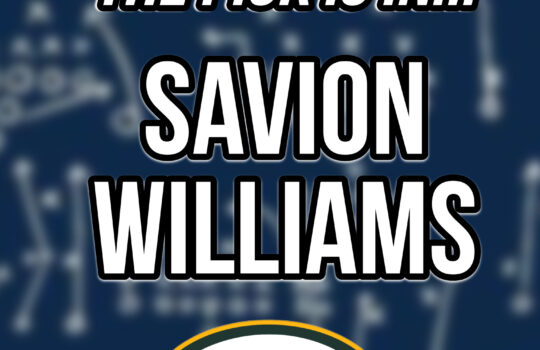
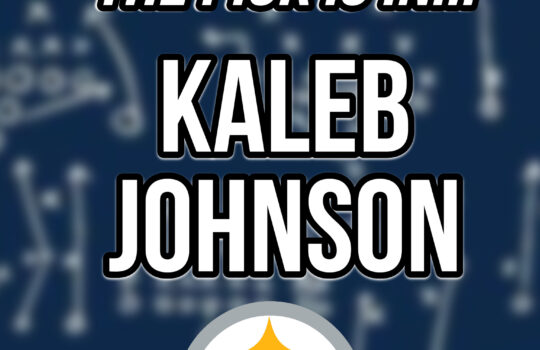

 New York Jets
New York Jets  New England Patriots
New England Patriots 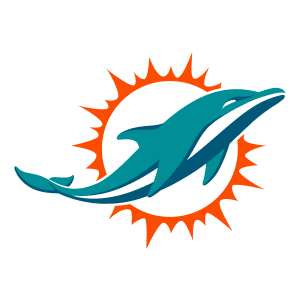 Miami Dolphins
Miami Dolphins  Buffalo Bills
Buffalo Bills  Pittsburgh Steelers
Pittsburgh Steelers  Cleveland Browns
Cleveland Browns  Cincinnati Bengals
Cincinnati Bengals  Baltimore Ravens
Baltimore Ravens 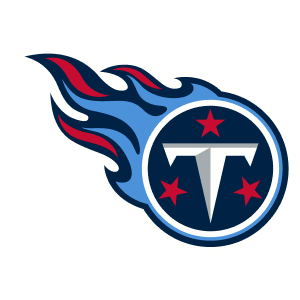 Tennessee Titans
Tennessee Titans  Jacksonville Jaguars
Jacksonville Jaguars  Indianapolis Colts
Indianapolis Colts  Houston Texans
Houston Texans  Las Vegas Raiders
Las Vegas Raiders  Los Angeles Chargers
Los Angeles Chargers  Kansas City Chiefs
Kansas City Chiefs  Denver Broncos
Denver Broncos  Washington Commanders
Washington Commanders  Philadelphia Eagles
Philadelphia Eagles  New York Giants
New York Giants  Dallas Cowboys
Dallas Cowboys  Minnesota Vikings
Minnesota Vikings  Green Bay Packers
Green Bay Packers  Detroit Lions
Detroit Lions  Chicago Bears
Chicago Bears  Tampa Bay Buccaneers
Tampa Bay Buccaneers  New Orleans Saints
New Orleans Saints  Carolina Panthers
Carolina Panthers  Atlanta Falcons
Atlanta Falcons  San Francisco 49ers
San Francisco 49ers  Seattle Seahawks
Seattle Seahawks  Los Angeles Rams
Los Angeles Rams  Arizona Cardinals
Arizona Cardinals 








 Boston Celtics
Boston Celtics  Brooklyn Nets
Brooklyn Nets  Philadelphia 76ers
Philadelphia 76ers  New York Knicks
New York Knicks  Toronto Raptors
Toronto Raptors  Chicago Bulls
Chicago Bulls  Detroit Pistons
Detroit Pistons  Milwaukee Bucks
Milwaukee Bucks  Cleveland Cavaliers
Cleveland Cavaliers  Indiana Pacers
Indiana Pacers  Orlando Magic
Orlando Magic 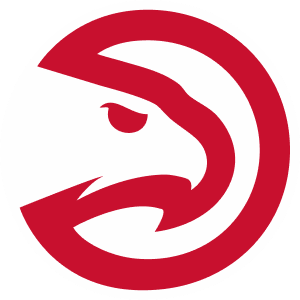 Atlanta Hawks
Atlanta Hawks  Charlotte Hornets
Charlotte Hornets  Miami Heat
Miami Heat  Washington Wizards
Washington Wizards  Denver Nuggets
Denver Nuggets  Minnesota Timberwolves
Minnesota Timberwolves  Oklahoma City Thunder
Oklahoma City Thunder  Portland Trail Blazers
Portland Trail Blazers  Utah Jazz
Utah Jazz  LA Clippers
LA Clippers  Golden State Warriors
Golden State Warriors  Los Angeles Lakers
Los Angeles Lakers  Phoenix Suns
Phoenix Suns  Sacramento Kings
Sacramento Kings  Dallas Mavericks
Dallas Mavericks  Houston Rockets
Houston Rockets  Memphis Grizzlies
Memphis Grizzlies  New Orleans Pelicans
New Orleans Pelicans  San Antonio Spurs
San Antonio Spurs 










